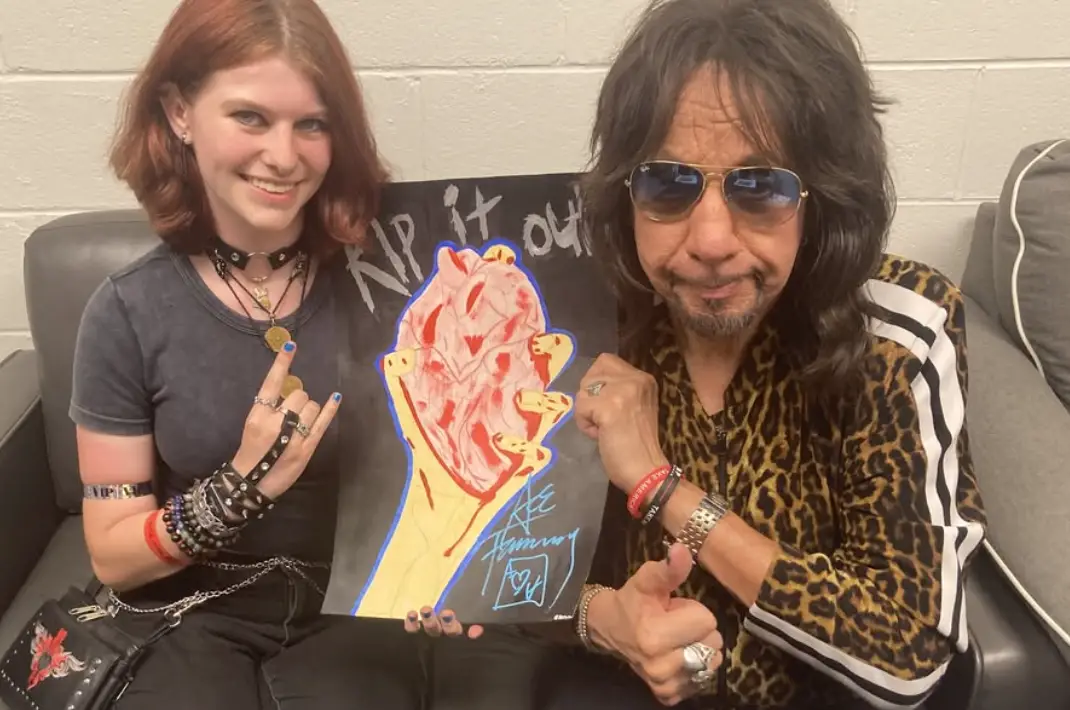Ace Frehley, the original lead guitarist of Kiss whose fire-spitting “Spaceman” persona helped define one of rock’s most theatrical bands, has died at 74 from injuries sustained in a fall, ending a turbulent and influential career that spanned five decades and bridged club grit, arena spectacle and solo resurgence. His family and representatives confirmed that he died in New Jersey after complications from a recent accident at home; in the days before his death, he had been hospitalized following a brain bleed and had canceled planned appearances while receiving treatment. News of his passing, the first among Kiss’s founding quartet, prompted an immediate outpouring from former bandmates, peers and younger guitarists who traced their first power chords to his slashing, melodic riffs.
Born Paul Daniel Frehley in the Bronx on April 27, 1951, he was the son of a Dutch immigrant father and a mother of Norwegian descent, and grew up in a working-class household where music and visual flair came naturally. He began playing guitar as a teenager, gravitating to the British invasion, blues-rock and the swagger of players who made tone as expressive as technique. By the early 1970s he was circulating through New York’s club circuit when he answered a newspaper ad placed by bassist Gene Simmons and guitarist Paul Stanley, auditioning in mismatched orange and red sneakers that, by their account, made as strong an impression as his explosive, sustain-rich playing. He joined Simmons, Stanley and drummer Peter Criss in 1973, and within months the group fixed on a concept—makeup, aliases and choreographed bombast—that would become both marketing masterstroke and creative framework.
Frehley’s “Space Ace” character, a silver-and-black avatar with starburst eye makeup and a futurist sheen, supplied one quadrant of Kiss’s visual compass alongside Simmons’s demon, Stanley’s starchild and Criss’s cat. Onstage, he coaxed smoke from a Les Paul that seemed to breathe, fired rockets from a guitar headstock, and punctuated “Shock Me” with a solo that fused showmanship to a surprisingly lyrical sense of line. Offstage, he took an active hand in the band’s iconography, contributing to the angular logo that framed an era of lunchboxes, pinball machines and stadium banners. His knack for hooks made him an essential studio voice as Kiss moved from roughhewn debut to chart presence, and his rhythm playing—chunky, behind the beat, built to make choruses open like trapdoors—was as central to the band’s signature as his better-known lead breaks.
He shared or took sole writing credit on songs that became canon in the Kiss repertoire, including the bar-room menace of “Cold Gin,” the declarative swagger of “Shock Me,” the sleaze-and-smirk of “Parasite” and the stomp of “Strange Ways.” As Kiss transitioned from cult favorite to chart force, his parts threaded through records that would become hard-rock landmarks: the concert document “Alive!” in 1975 that converted skeptics with proof the band could play as hard as it posed; “Destroyer” in 1976, with Bob Ezrin’s production smoothing the rough edges without neutering them; and “Love Gun” in 1977, where Frehley’s tone sat dry and immediate, a foil to Simmons’s bass rumble and Stanley’s rhythm steel. If Simmons and Stanley were the most visible architects of Kiss’s songs, Frehley’s guitar work was the glue that made the big choruses feel like communal shouts rather than studio constructions.
